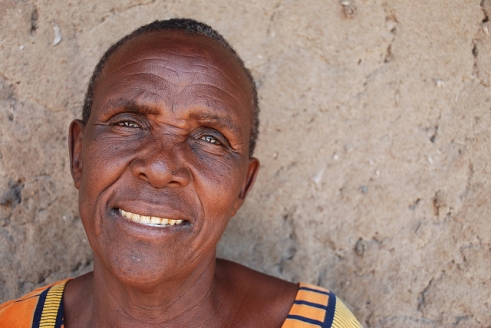By Sarah Marzouk
This week, the fifty-seventh session of the Commission on the Status of Women (CSW) is taking place at United Nations headquarters in New York. The CSW is the principal global policy-making body dedicated to gender equality and advancement of women. This year’s priority theme is “The elimination and prevention of all forms of violence against women and girls”.
HelpAge is present at the CSW and is participating in events on “violence and widowhood” and “gender stereotypes”. We are also organising an event on the theme of “rethinking violence against women”.
The event coincides with International Women’s Day, which takes place on 8 March and celebrates the achievements of women while campaigning for greater gender equality.

Lack of data on violence against older women
At the CSW events, HelpAge representatives are highlighting specific questions relating to violence against older women. These include the issue that surveys on violence against women rarely collect data after the age of 49, meaning that the violence and abuse that millions of women may be experiencing is going unrecorded. This issue is only likely to grow with global population ageing and increased numbers of older women.
Another challenge is that data collected on violence against women is often limited to that of physical and sexual violence. What little data there is shows that older women, many of whom have experienced violence throughout their lives, are exposed to different types of violence: Physical, sexual, economic, psychological and neglect.
Indeed, a study conducted in Kenya showed that 60% of older women were being abused by their daughters-in-law who were preventing them from getting regular food, warm clothes, adequate shelter and medical attention. Despite this, older women and the different forms of violence they are subjected to continue to be excluded from the debate and responses on violence against women.
Education crucial to change attitudes towards older women
Bridget Sleap, HelpAge’s Senior Rights Policy Advisor commented: “The current international human rights system does little to shed light on violence against older women, nor support governments to understand their obligations to protecting and promoting older women’s rights.
“Coordinated action to improve policy responses at the national and international level on elder abuse, with specific regard to violence against older women, is urgently needed. Education and awareness campaigns are essential to change negative social and cultural attitudes towards older women. However, there is a paucity of quality research on prevalence and prevention, meaning that evidence-based programmes are few and far between.”
In joint statement written for the CSW, HelpAge and the International Network for the Prevention of Elder Abuse (INPEA) make three recommendations on how to achieve progress in these areas:
- Collect, disaggregate and disseminate data on violence against women beyond the age of 49.
- Improve measurement of psychological and economic violence.
- Increase research on under-documented forms of violence against women, including psychological and economic violence.
